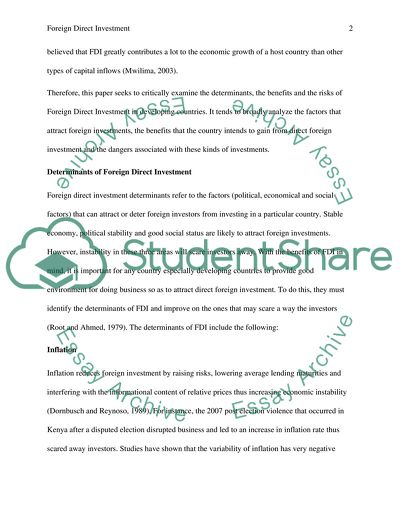Cite this document
(“Determinants, Benefits and the Risks of Foreign Direct Investment for Assignment”, n.d.)
Retrieved from https://studentshare.org/macro-microeconomics/1576117-critically-examin-the-determinants-the-benefits-and-the-risks-of-foreign-direct-investment-for-developing-countries-using-example-of-your-choice
Retrieved from https://studentshare.org/macro-microeconomics/1576117-critically-examin-the-determinants-the-benefits-and-the-risks-of-foreign-direct-investment-for-developing-countries-using-example-of-your-choice
(Determinants, Benefits and the Risks of Foreign Direct Investment for Assignment)
https://studentshare.org/macro-microeconomics/1576117-critically-examin-the-determinants-the-benefits-and-the-risks-of-foreign-direct-investment-for-developing-countries-using-example-of-your-choice.
https://studentshare.org/macro-microeconomics/1576117-critically-examin-the-determinants-the-benefits-and-the-risks-of-foreign-direct-investment-for-developing-countries-using-example-of-your-choice.
“Determinants, Benefits and the Risks of Foreign Direct Investment for Assignment”, n.d. https://studentshare.org/macro-microeconomics/1576117-critically-examin-the-determinants-the-benefits-and-the-risks-of-foreign-direct-investment-for-developing-countries-using-example-of-your-choice.


